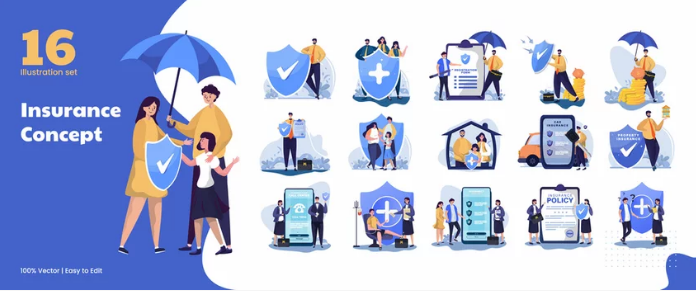The insurance industry—long known for its complex paperwork, manual underwriting, and traditional customer service—is undergoing a massive digital transformation. Artificial intelligence (AI), automation, and advanced data technologies are redefining how insurers operate, interact with clients, and assess risk.
As customer expectations shift toward speed, personalization, and transparency, technology is not just improving efficiency—it’s completely reshaping the future of insurance.
This article explores how AI and emerging technologies are transforming the insurance landscape, the benefits they bring to both providers and consumers, and what the next decade could look like for this evolving industry.
The Digital Revolution in Insurance
Technology has been steadily modernizing insurance for years, but recent innovations—especially in AI, machine learning (ML), and big data—are accelerating that change like never before.
Traditional insurers are no longer competing solely with each other. They now face challenges from InsurTech startups, companies that use cutting-edge technology to simplify, automate, and personalize every step of the insurance journey.
The result is a smarter, faster, and more customer-centric industry that operates on real-time data and predictive analytics instead of guesswork.
1. Artificial Intelligence: The Brain Behind Modern Insurance
AI is the driving force of the insurance industry’s transformation. From claim processing to fraud detection, AI streamlines operations, reduces costs, and enhances customer satisfaction.
Automated Claims Processing
Traditionally, filing an insurance claim could take weeks. AI-powered systems now analyze data, verify documents, and process claims within hours—or even minutes.
Example:
AI algorithms can evaluate photos of damaged vehicles to estimate repair costs accurately, eliminating the need for human adjusters in minor claims.
Fraud Detection and Prevention
Insurance fraud costs companies billions annually. AI models can analyze massive data sets to detect unusual patterns or inconsistencies, identifying suspicious claims before they are paid out.
Chatbots and Virtual Assistants
AI chatbots are revolutionizing customer service by handling inquiries 24/7. These bots assist with policy information, renewals, claims tracking, and even personalized recommendations—all without human intervention.
2. Big Data and Predictive Analytics
Data is the new currency of the insurance world. Every click, purchase, or driving pattern creates valuable information that insurers can analyze to better understand customer behavior and risk.
Personalized Policies
Predictive analytics allow insurers to customize coverage based on lifestyle and behavior rather than broad demographics. For instance, car insurers now use telematics (real-time driving data) to adjust premiums based on actual driving habits rather than generic risk categories.
Risk Assessment and Underwriting
AI and big data enable more accurate underwriting. Instead of relying on static forms, insurers can analyze years of digital behavior, credit history, and location-based data to price policies precisely and fairly.
Result: Faster approvals, better risk prediction, and more competitive pricing.
3. Internet of Things (IoT): The Connected Future of Insurance
The Internet of Things (IoT)—networks of connected devices that collect and transmit data—is reshaping risk assessment and claims management across multiple insurance sectors.
Auto Insurance
Telematics devices and mobile apps track speed, braking patterns, and mileage. Safe drivers benefit from usage-based insurance (UBI) models, earning discounts for responsible driving.
Home Insurance
Smart home devices like leak detectors, smoke alarms, and security cameras alert homeowners—and insurers—of risks in real time. This helps prevent damage before it occurs, reducing both claims and costs.
Health Insurance
Wearable devices such as fitness trackers and smartwatches monitor physical activity, heart rate, and sleep. Insurers use this data to encourage healthier lifestyles and offer rewards for maintaining wellness goals.
4. Blockchain: Enhancing Trust and Transparency
Blockchain technology, best known for powering cryptocurrencies, is now being adopted by insurers to improve security, transparency, and efficiency.
Smart Contracts
Blockchain enables smart contracts—self-executing agreements that automatically trigger payments when conditions are met. This eliminates manual claim verification and reduces fraud.
Data Security
Because blockchain stores data across decentralized networks, it’s nearly impossible to alter or hack. This makes it ideal for protecting sensitive customer information and transaction records.
Example: A travel insurance policy could automatically issue a payout if a flight delay is confirmed by the airline—no paperwork required.
5. Cloud Computing and Automation
Cloud-based platforms allow insurers to store and process massive amounts of data securely and efficiently. They also enable remote operations and faster product development.
Benefits of Cloud Integration
- Scalability: Handle growing data needs easily.
- Cost Efficiency: Reduce IT infrastructure costs.
- Real-Time Collaboration: Agents, brokers, and customers access data from anywhere.
Automation, powered by robotic process automation (RPA), further enhances productivity by handling repetitive tasks such as data entry, policy renewals, and compliance checks.
6. Machine Learning in Risk Modeling
Machine learning allows insurers to learn from past data and continuously improve decision-making models.
Use Cases
- Claims Forecasting: Predict which customers are more likely to file claims.
- Customer Retention: Identify at-risk policyholders and offer tailored renewal incentives.
- Pricing Optimization: Adjust premiums dynamically based on changing risk factors.
Over time, these models become smarter and more accurate, leading to better pricing and customer satisfaction.
7. Personalized Customer Experience
In the digital era, customers expect more than basic coverage—they want experiences tailored to their individual needs.
AI-driven analytics help insurers deliver:
- Customized policy recommendations based on life stage or financial goals.
- Personalized communication via preferred channels (email, app, or chat).
- Proactive engagement, such as reminders to update coverage when circumstances change.
Technology is transforming insurance from a transactional industry into a relationship-based ecosystem focused on customer value.
8. Cybersecurity: A New Frontier for Insurers
As insurers embrace digital transformation, cybersecurity becomes a top priority. With more sensitive data online, the risks of cyberattacks increase.
This has created a growing market for cyber insurance, designed to protect businesses from data breaches, ransomware attacks, and digital theft.
Smart Trend: Insurers are using AI to monitor and predict potential cyber threats, helping clients strengthen their defenses before attacks occur.
9. The Rise of InsurTech Startups
InsurTech startups are redefining the insurance experience through simplicity, transparency, and tech-driven innovation.
These companies leverage AI, mobile platforms, and automation to make insurance:
- Faster: Instant policy approvals.
- Simpler: Clearer terms and pricing.
- Cheaper: Reduced administrative overhead.
From AI-driven brokers to peer-to-peer insurance models, InsurTechs are pushing traditional players to modernize or risk being left behind.
10. The Future: Predictive, Preventive, and Proactive Insurance
The next era of insurance will shift from protection after a loss to prevention before a loss.
Imagine insurers that:
- Warn you of health issues based on wearable data.
- Notify homeowners of potential flooding before it happens.
- Offer discounts for maintaining safe driving or fitness routines.
AI and technology are creating a world where insurance becomes more about prediction and prevention—and less about paperwork and payouts.
Final Thoughts: Technology as a Partner, Not a Replacement
The future of insurance isn’t about machines replacing people—it’s about technology enhancing human expertise. AI and automation handle the data-heavy tasks, while agents focus on empathy, advice, and personalized guidance.
In the coming years, the insurance industry will continue to evolve into a smarter, faster, and more transparent system—one that benefits both providers and policyholders alike.
By embracing technology today, insurers can ensure a safer, more connected, and more customer-centric tomorrow.






